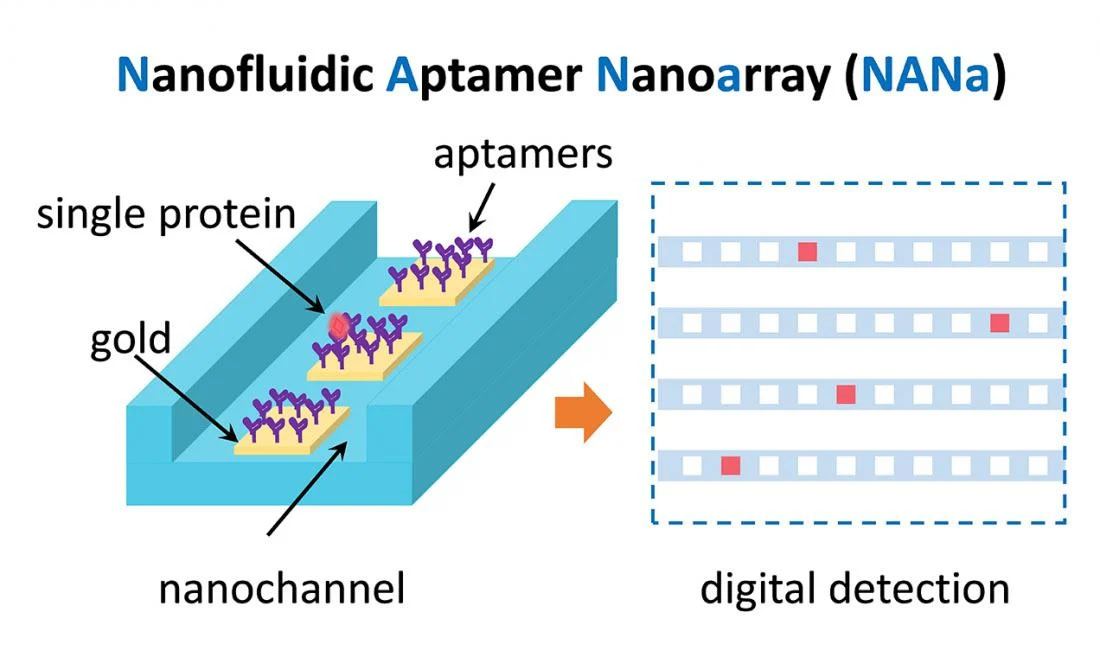| Jun 23, 2023 |
Groundbreaking nanofluidic device measures individual proteins
(Nanowerk News) An international team led by Professor Yan Xu from Osaka Metropolitan University has developed a groundbreaking nanofluidic device, named NANa, capable of stochastically capturing and digitally detecting individual proteins at cellular concentrations. This tool, vital for precision medicine, is designed to handle tiny volumes equivalent to a single cell's contents and can identify single biomolecules even in high-concentration environments.
|
|
The team plans to conduct further demonstrations using actual cell samples and explore the integration of this tool with artificial intelligence (AI) and biological big data. This research could potentially revolutionize personalized disease prevention and treatment.
|
|
The research results are set to be published in Small ("Nanofluidic aptamer nanoarray to enable stochastic capture of single proteins at normal concentrations").
|
 |
| Schematic illustration of the NANa principle for stochastically capturing and digitally detecting single proteins. (Image: Yan Xu, Osaka Metropolitan University)
|
|
In the evolving world of precision medicine, the need for methods that can measure biomolecules with supreme accuracy and specificity is paramount. Recognizing this, Associate Professor Yan Xu of the Graduate School of Engineering at Osaka Metropolitan University and his international research team have made a great stride in this direction. They have developed an innovative nanofluidic device capable of capturing single proteins stochastically and detecting them digitally at their naturally high concentrations. This breakthrough could potentially lay the foundation for the future of personalized disease prevention and treatment.
|
|
Precision medicine aims to tailor prevention and treatment strategies based on individual genetic data, environmental factors, lifestyle, and other determinants. Integral to this is the accurate measurement of biomolecules, such as genes and proteins, within single cells. However, until now, there have been no tools capable of simultaneously handling the minuscule volume of a single cell’s content – typically on the order of picoliters (10−12 L) – and quantifying biomolecules in high-concentration cellular environments.
|
|
The device, named the Nanofluidic Aptamer Nanoarray (or NANa for short), is a nanochannel-based chip designed for the digital assay of individual molecules in a sample with an ultrasmall volume equivalent to that of a single cell. Using synthetic antibodies known as aptamers, NANa can stochastically capture and digitally detect single molecules of target proteins even within high-concentration samples. These aptamers, which bind to specific molecules, are densely arrayed within the nanochannels of the device.
|
|
Looking forward, the researchers plan to conduct practical demonstrations with actual cell samples, digitize the measurement data obtained, and explore the potential of integrating AI-based image recognition technology and biological big data. “Humans are complex organisms consisting of a vast number of cells,” explained Professor Xu. “We hope NANa, which digitizes information on the number of biomolecules in individual cells, will serve as a bridge between life science and information science, paving the way for precision medicine in the future.”
|

